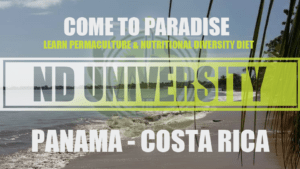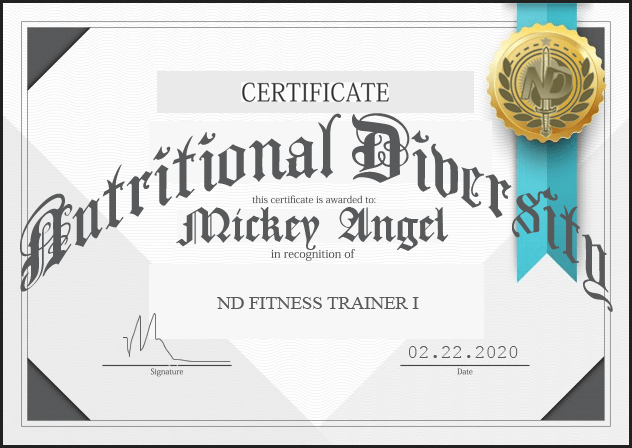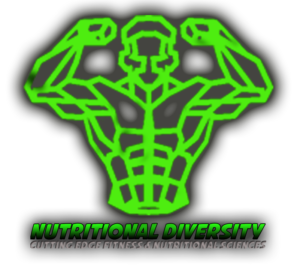Physical Practice
Rebuilding Strong Healthy Communities

With health, prosperity and and abundance mindset in the forefront of the vision, a harmony with nature paying attention to her many teachings we have missed the sign right in front of us, that says “optimal health and economy of all.”
Fitness, at its core, is not merely an activity but a fundamental aspect of individual well-being and, by extension, the health of communities. It transcends the bounds of physical health, intertwining with mental and emotional well-being, offering a holistic approach to living fully. For individuals, the regular practice of fitness activities fosters resilience, enhances mood, and boosts overall health, reducing the risk of chronic diseases significantly. It’s a potent antidote to the stresses of modern life, offering moments of clarity and tranquility amidst the tumult. Fitness cultivates discipline and perseverance, qualities that echo far beyond the gym or the jogging path, influencing every aspect of one’s life. In essence, skipping fitness is not just neglecting the body’s need for movement and strength; it’s overlooking a crucial component of holistic health and personal development.
Communities that pivot around nature as the central focus of their development strategy inherently recognize the multifaceted benefits of integrating natural spaces with human habitats. These communities are richer, not just in the economic sense but in the quality of life they offer. Natural settings enhance physical activity levels among community members, encouraging walking, cycling, and other forms of exercise that are vital for maintaining fitness. Moreover, the presence of green spaces has been linked to lower levels of stress, greater social cohesion, and enhanced mental health. Communities designed with nature at their heart foster a sense of belonging and connection, not just among individuals, but also with the environment itself. This symbiotic relationship nurtures a culture of conservation, promoting sustainable lifestyles and encouraging active, health-conscious living. In turn, these communities become beacons of wellness, exemplifying how aligning human development with the natural world can elevate the collective well-being, create more vibrant social ecosystems, and carve pathways to a sustainable future where fitness and nature walk hand in hand.
The natural diet, deeply rooted in the diverse and bountiful offerings of the natural world, was fundamentally composed of a wide array of plants that early humans foraged from their surroundings. This diet was inherently varied, reflecting the seasonal and geographical diversity of available flora, from leafy greens and wild fruits to nuts, seeds, and roots. Such dietary diversity not only catered to the nutritional needs of our ancestors but also to the development of our physiological and metabolic systems, optimizing health and fostering adaptability to different environments. This rich tapestry of plant-based foods, consumed in their most natural and unprocessed forms, provided a balanced intake of vitamins, minerals, fiber, and phytonutrients essential for sustaining energy, boosting immunity, and promoting overall well-being. The evolutionary shift towards a diet encompassing a wide spectrum of natural plants underscores the intricate relationship between human health and the natural environment, highlighting the importance of biodiversity in our nutrition and the profound impact of our ancestral dietary patterns on modern health paradigms.

Spanish
El fitness, en esencia, no es simplemente una actividad sino un aspecto fundamental del bienestar individual y, por extensión, de la salud de las comunidades. Trasciende los límites de la salud física, se entrelaza con el bienestar mental y emocional y ofrece un enfoque holístico para vivir plenamente. Para las personas, la práctica regular de actividades físicas fomenta la resiliencia, mejora el estado de ánimo y mejora la salud general, reduciendo significativamente el riesgo de enfermedades crónicas. Es un potente antídoto contra el estrés de la vida moderna, que ofrece momentos de claridad y tranquilidad en medio del tumulto. El fitness cultiva la disciplina y la perseverancia, cualidades que resuenan mucho más allá del gimnasio o la pista de jogging, e influyen en todos los aspectos de la vida. En esencia, saltarse el fitness no es sólo descuidar la necesidad de movimiento y fuerza del cuerpo; está pasando por alto un componente crucial de la salud integral y el desarrollo personal.
Las comunidades que giran en torno a la naturaleza como foco central de su estrategia de desarrollo reconocen inherentemente los beneficios multifacéticos de integrar espacios naturales con hábitats humanos. Estas comunidades son más ricas, no sólo en el sentido económico sino también en la calidad de vida que ofrecen. Los entornos naturales mejoran los niveles de actividad física entre los miembros de la comunidad, fomentando caminar, andar en bicicleta y otras formas de ejercicio que son vitales para mantenerse en forma. Además, la presencia de espacios verdes se ha relacionado con niveles más bajos de estrés, una mayor cohesión social y una mejor salud mental. Las comunidades diseñadas teniendo en cuenta la naturaleza fomentan un sentido de pertenencia y conexión, no sólo entre los individuos, sino también con el medio ambiente mismo. Esta relación simbiótica fomenta una cultura de conservación, promueve estilos de vida sostenibles y fomenta una vida activa y consciente de la salud. A su vez, estas comunidades se convierten en faros de bienestar, ejemplificando cómo alinear el desarrollo humano con el mundo natural puede elevar el bienestar colectivo, crear ecosistemas sociales más vibrantes y abrir caminos hacia un futuro sostenible donde el fitness y la naturaleza caminan de la mano.
Tenemos un coAbrazar una dieta meticulosamente seleccionada compuesta por 60 alimentos distintos y elegidos estratégicamente, celebrados no solo por sus cualidades para mejorar las hormonas sino también por sus orígenes en granjas especializadas a pequeña escala, trasciende la mera nutrición; es una odisea hacia cenit atlético y de salud incomparables. Esta filosofía alimentaria holística, que evita las omnipresentes ofertas de los pasillos de los supermercados locales en favor de la rara generosidad de los cultivadores dedicados, es un llamado de atención para quienes buscan aprovechar el poder sinérgico de las provisiones más potentes de la naturaleza. Una dieta así, libre de la contaminación de los monocultivos químicos, se convierte no sólo en un sustento, sino en un conducto para alcanzar un estado sublime de armonía y rendimiento corporal. El énfasis en la diversidad y la calidad (seleccionar ingredientes que sean tan inmaculados por las prácticas agrícolas industriales como eficaces para mejorar las funciones corporales) garantiza que cada comida nutre a nivel celular, optimiza el equilibrio hormonal y fomenta un entorno donde la salud y la vitalidad florecen.
La transición a un estilo de vida rico en ingredientes cultivados de forma diversa y procedentes de pequeñas granjas presagia un renacimiento de la destreza atlética y el bienestar. Imagine la energía ilimitada, la rápida recuperación y la sólida salud que se pueden lograr cuando el cuerpo se alimenta de los extractos más puros de la tierra: alimentos que han sido seleccionados no sólo por su valor nutricional, sino también por su vitalidad, su esencia intacta. por las depredaciones causadas por la dependencia de agroquímicos. Una dieta de este tipo es un testimonio del poder del consumo consciente y ofrece un faro para quienes aspiran a elevar su rendimiento a la estratosfera. La alquimia de los alimentos cultivados de forma natural y elegidos meticulosamente promete no sólo un incremento de las capacidades físicas sino una revolución en la forma en que percibimos el acto mismo de alimentarnos. Es una búsqueda que une el arte de la gastronomía con la ciencia de la salud, impulsándonos hacia un futuro en el que nuestras comidas sean tan profundamente beneficiosas como deliciosas, un futuro en el que el cenit de nuestro bienestar físico y mental esté a nuestro alcance. , cortesía de la generosidad incomparable proporcionada por las pequeñas granjas dedicadas al arte de la agricultura sostenible y que mejora la salud. Aquí hay un sistema de educación que actualmente no está en uso, pero está listo y en espera para la implementación a gran escala de sistemas agrícolas y nutricionales alternativos.
La dieta natural, profundamente arraigada en las diversas y abundantes ofertas del mundo natural, estaba compuesta fundamentalmente por una amplia gama de plantas que los primeros humanos buscaban en su entorno. Esta dieta era intrínsecamente variada, lo que reflejaba la diversidad estacional y geográfica de la flora disponible, desde verduras de hojas verdes y frutas silvestres hasta nueces, semillas y raíces. Esta diversidad dietética no sólo atendía las necesidades nutricionales de nuestros antepasados sino también el desarrollo de nuestros sistemas fisiológicos y metabólicos, optimizando la salud y fomentando la adaptabilidad a diferentes entornos. Este rico tapiz de alimentos de origen vegetal, consumidos en sus formas más naturales y sin procesar, proporcionó una ingesta equilibrada de vitaminas,
, fibra y fitonutrientes esenciales para mantener la energía, aumentar la inmunidad y promover el bienestar general. El cambio evolutivo hacia una dieta que abarca un amplio espectro de plantas naturales subraya la intrincada relación entre la salud humana y el medio ambiente natural, destacando la importancia de la biodiversidad en nuestra nutrición y el profundo impacto de nuestros patrones dietéticos ancestrales en los paradigmas de salud modernos.
Physical Practice
Complete Optimization
The Everything Upgrade We Absolutely Must Do
Ecological Enhancement: The Bio-Revolution
is
The Health Revolution
is
The Culture
is
The Future We Must Choose
and
..we are right on time.
This should be the entire planet’s priority right now.
Introduction:
The Power of Diversity
The Best Hybrid Civilization
Significantly Leveling up as a wordwide step!
Life begins in diversity.
With a high brid tech and large”Department of Life” lets call it with diverse instalations of ecological enhancement, incredible food production and wonderful new set of career paths to work with nature and tech in a wonderful solution to everything. We can concretely say this is a moral obligation.
If you read this and don’t agree that follwing work you are about to read warrants multigovernemental investment I would be stunned. If you don’t think this is a better solution to all war investment, even more so. The high tech war-machine is in whatever way exactly what we need to convert into the high tech eco-enhancment complex.
Stay with me.
Diversity is the connective element of life because differences create complementary fits: genes combine to adapt, species partition niches and trade services, and ecosystems weave these exchanges into resilient networks where energy, nutrients, and information circulate. Heterogeneity increases links (mutualisms, symbioses, predator–prey checks), redundancy (backups when conditions shift), and modularity (localized shocks don’t collapse the whole). From microbiomes to forests to human cultures, richer variety multiplies cooperation, innovation, and adaptive capacity, binding living systems across scales into a single, self-healing fabric. In short, diversity isn’t just “more kinds of things”—it’s the architecture that connects them so life can persist, evolve, and thrive.
For us, it begins in the microbiome — trillions of species exchanging chemistry inside us, creating balance, vitality, and resilience. Without this diversity, we cannot digest, we cannot heal, we cannot thrive. The same is true in the soil, where microbial networks weave fertility. The same is true in forests, where countless species of plants and animals form living tapestries. And it is true in the cosmos itself, where diverse elements and forces come together to create galaxies, stars, planets — and us.
It is diversity that makes life possible.
And it is diversity that makes life optimal.
Yet humanity has forgotten this truth. We have centralized into cities, streamlined into monocultures, and simplified our diets and our lifestyles until fragility defines us. We have traded resilience for convenience. Strength for dependency. Life for illusion.
The future we should choose is a return to diversity, to nature and the natural way — not as a nostalgic retreat, but as an intelligent leap forward. Imagine sustainable, small communities spread across the planet, especially near the equatorial line, where life flourishes most intensely. Each community functions as a unique fingerprint — no two alike — shaped by its land, its people, its culture. Each practices advanced forms of biodynamic and beyond-biodynamic cultivation, enhanced by ecological technologies, drones, and living systems.
These communities are not isolated. They are compartments in a global body, each carrying its part of the planetary microbiome. Together, they weave a decentralized, resilient civilization rooted in ecological truth and cosmic diversity.
I served on the USS Carl Vinson CV-70 nuclear-powered aircraft carrier in the Persian Gulf in 2005, SWMD lie. Fun fact: I was a Chemical, Biological & Radiological Warfare Defense Specialist for most of that deployment. Each room in the ship is a hatch-down secure compartment; air and water-tight security is used to ensure the ship does not go down, just because a few compartments do. Compartementalization.,
My final two years office service I would be the INDOC Damage Control Certifier for roughly two Carrier Crews completely, around 10k personal in qualifying subjectrs such as Chemical Biological and Radiological Warfare Defense (MOPP) proceedures and basic flooding and fire control.
We need to be the same, our small tribes, encampments, nomadic units, must be made of tough, smart, strategic material and design and interface with other elements, this way at all times. Lazy, unordered conduct is definitely a sin.
When I say we, I knowingly understand this to be a small segment of society that goes and establishes this type of new construct, or conversion of existing cosntruct to serve in a more natural sense. As much as a U.S. Department of Life, or Department of Natural Sciences, that was as funded as the Department of Defense would spark such revolutionary change on this planet – most of us unfortunately know that this kind of thing won’t come from current curcumstances. Maybe it can though, as you read on you may see exactly how.
To live a lie is allways temporary. What’s impressive is how well the toxic food, spirit, health, performance, has been captivated by the destructive, war making and deceptive monoculture illusion slavemaking system and long it has been maintained.
They say, “Success is on the other side of ego.” Will society be able to rise high enough to see that they have been duped, and it now rests on them to turn it around? Now that I have laid out the plans and mechanics of the solution for us here. Will we have the discipline to act? Once again, a strategic, well-pointed cocktail of diverse elements; nouns, verbs – the mouth sounds we make do not begin to describe. Will this be even seen, or be a buried treasure never to be discovered or realized again through the ether, as of this exists, we just access it when it is earned.
A whole picture a complete understanding is needed. The metaphysics I discussed are real, whether or not you or the programmed version of you, the lesser self, realise it or not.
Through incredibly diverse experiences, and very deep relationship with nature, and the Great Spirit that I can draw these realizations.
The journey is the destination, my friends, and we are all on it.
This is possible, and should be done – it is because of the drone, and drone era , that we can establish the most potent ecosystem enhancement that has likely ever been conducted, outside of an initial terraformation process – however long that took. This process would yield incredible results in just two years time, and in 20 years we could be living in an Avatar-movie-like wonderland, eating better than any King ever has, and living an incredibly prosperous life for all.
Excerpt: Drone Ecological Enhancement
The drone is not a machine of war. It is a partner in life. We have started an ecological enhancement drone project that, combined with this knowledge and information, could empower our small, but spearhead of a group to launch a lay-line oriented operation that could enhance the entire ecology of Earth.
This is a natural, chemical-free, integrated with the current lines of nature, and can become obvious to anyone who goes and spends the required time and sacrifice to build a solid relationship with nature.
Just as bees pollinate flowers and spread fertility, drones can distribute the chemistry of regeneration. Imagine lightweight drones carrying compost tea, scattering seeds in complex mixes that mimic the jungle, spraying microbial inoculants, or tracing water flows to restore hydrological balance.
The goal is not domination. The goal is cooperation.
Diversity is the guide. Just as the microbiome thrives by hosting countless species, our new agriculture must thrive by hosting countless plants, fungi, and animals in symbiosis. Drones can accelerate this — not by replacing hands and hearts, but by extending them, allowing communities to cultivate abundance across hundreds of hectares without industrial destruction.
Picture the planet dotted with communities like stars — each small, sustainable, resilient, and unique. Along the equatorial line, these settlements radiate out like the veins of a new civilization. Each is a laboratory of diversity: food forests, herbal gardens, aquaculture systems, livestock rotations, bee cultures, orchards — all orchestrated in harmony.
This is not just biodynamic agriculture. It is more than biodynamic. It is an ecological enhancement on a planetary scale.
And it begins with the choice to honor diversity — from the microbiome within us to the cosmic chemistry above us.
Through incredibly diverse experiences, and very deep relationship with nature, and the Great Spirit that I can draw these realizations.
The journey is the destination, my friends, and we are all on it.
Sincerely,
Your fellow Journeyman.
The Necessary Choice
Humanity is facing a convergence of crises. Climate instability, food scarcity, collapsing health, and the erosion of culture all point to the same root cause: we have broken our relationship with nature.
When we strip the soil, we strip our food. When we simplify ecosystems into monocultures, we invite collapse. When we build cities that consume but do not produce, we create a dependency that cannot last. The idea that we can live this way forever is an illusion; it is a lie. These choices are not only unsustainable — they are suicidal.
But there is another path.
The key is diversity. The microbiome inside us shows the pattern. Forests and oceans echo it. The cosmos itself is a symphony of diverse forces. Life thrives when complexity is honored, not when it is erased.
By spreading small, sustainable communities across the planet — especially along the equatorial line where fertility flows strongest — we can rebuild resilience from the ground up. Each community becomes a node in a global network:
-
Food Crisis: Answered by nutrition-rich agriculture rooted in diversity, not yield alone.
-
Climate Change: Addressed by regenerating soil, water cycles, and plant cover — the true regulators of the atmosphere.
-
Sustainability: Transcended into thrivability, where human health, ecological health, and cultural creativity all rise together.
-
Population Growth: Supported by decentralized abundance, making room for more people to live not just longer, but stronger, fuller lives.
This is not utopia. This is survival. This is a much higher quality of life for all.
If we refuse to change, if we cling to centralized, extractive systems, then collapse is inevitable. Nature is patient, but not permissive. We cannot cheat her laws. Either we cooperate with her — building communities that embody diversity and resilience — or we are swept aside.
The future we should choose is not only better. It is necessary.
And when I say ‘better’ I should say incedible, unimaginable upgrade.
1000 New Diverse Agriculture & Eco Power Centers
Here we give a tight, operator-grade view of why to build these eco-installations additionally to power grid upgrade and how they pay for themselves using food sales (pickup + restaurant), hotel income, and grid-interactive energy—while advancing the science of diverse natural production.
Why do it (in one breath)
They turn highways and rural nodes into profitable resilience hubs: lodging + food that people already need, farm-fresh supply on site, and clean power that cuts bills and earns grid revenue. Every site is a living lab that upgrades soils, water, biodiversity—and monetizes the data and brand trust that follow.
Monetization stack (per site, conservative but real)
(Illustrative 60-room lodge, farm-to-table restaurant, CSA pickup, 8–10 MW solar, 2–3 MW / 20 MWh battery, 0.5–1 MW biogas CHP. Assumes normal U.S. costs and traffic patterns.)
1) Hotel & experience
-
60 rooms, 70% OCC, ADR $160 → $2.45M/yr revenue; typical 30–40% EBITDA → $0.74–$0.98M.
-
Upsells (spa/sauna, hot springs, trail passes, workshops) → $150–300k margin.
2) Restaurant + prepared foods
-
120–150 covers/day, $30 ATC, 30% COGS → $1.3–1.6M/yr revenue, ~15% EBITDA → $200–250k.
-
High margin add-ons: beverages, grab-and-go, chef tastings.
3) Food pickup / CSA / farm retail
-
300–500 weekly boxes (avg $25) + farm stand → $350–500k/yr revenue, ~35–45% margin → $125–225k.
-
Brand premium: “grown-here” and nutrient-dense commands higher price with loyal locals + travelers.
4) Energy (savings + grid services)
-
Solar 8–10 MW (≈2 MW average) → on-site use + export value ~$1.7–1.9M/yr (avoided $/kWh + sales).
-
Battery 20 MWh / 2–3 MW → capacity, fast frequency response, TOU arbitrage ~$0.2–0.3M/yr net.
-
Biogas CHP 0.5–1 MW (food/green waste + manure) → electric + thermal offset ~$0.4–0.7M/yr net.
-
EV fast charging (managed by battery) → ~$60–120k/yr margin without crushing demand charges.
5) Events, education, R&D
-
Retreats, chef weekends, ag-tech demos, school programs → $200–400k/yr margin.
-
Data/brand/IP: soil/plant/energy telemetry packaged for grants, papers, sponsors, certification premiums.
Add it up (typical):
Gross revenue ≈ $7–8M/yr; site-level EBITDA typically $3.2–3.8M/yr after O&M, before debt service.
Why it’s financially durable
-
Three hedges in one: Rooms (tourism), Food (staple), Energy (utility-like). When travel dips, locals and energy still carry; when power prices spike, batteries earn more; when supply chains wobble, on-site food cushions margins.
-
Stacked margin: You grow inputs (lower COGS) and sell experiences (higher price). “Grown-here” lifts RevPAR, covers, and CSA stickiness.
-
Capex subsidized: Solar+storage ITC (30–50% with adders), accelerated depreciation, USDA/DOE grants, green bonds. Biogas often qualifies for organics/waste funds.
-
Grid-friendly design: Microgrids can run limited-export (fast interconnect), then graduate to full export/ancillary markets as utilities green-light.
Capex & payback (ranges you can underwrite)
-
Light site (40 rooms; 5 MW PV; 10 MWh batt): Capex $22–30M → EBITDA $1.8–2.4M → ~8–11 yr simple payback; 6–8 yr with tax credits + grants.
-
Full site (60 rooms; 8–10 MW PV; 20 MWh batt; 0.8 MW CHP): Capex $40–55M → EBITDA $3.2–3.8M → ~10–13 yr simple; 7–10 yr with incentives.
-
Portfolio effect (10–20 sites): shared ops, bulk procurement, centralized energy bidding → +10–20% EBITDA uplift; lower WACC.
How the science makes money (not just headlines)
-
Premium proof: Publish nutrient-density, soil-carbon, biodiversity, and energy-intensity dashboards → brand trust → higher ADR/ATC/CSA price.
-
Certification/credits: Regenerative/organic premiums; carbon + methane credits; “green charging” for fleets.
-
Licensing: Standard operating “playbooks” (foliars, guilds, biochar, battery dispatch) licensed to franchises or municipalities.
-
Sponsor & grant stack: Data-rich pilots attract food brands, equipment makers, and agencies funding resilient corridors.
Unit-level KPIs (run the business, not the myth)
-
Hotel: RevPAR, GOPPAR, energy per occupied room (kWh/occ).
-
Restaurant: Food cost %, labor %, plate contribution margin.
-
Farm: $/m², Brix, yield variability, water-use efficiency.
-
Energy: Self-consumption %, peak shaved (kW), $/kW-yr from services, islanding hours delivered.
-
Community: repeat CSA rate, local-sourcing %, event occupancy.
Risks & how you blunt them
-
Demand volatility: Lock weekday occupancy with corporate offsites, medical/wellness, and utility training; weekends with destination packages.
-
Interconnection lag: Start limited-export; oversize behind-the-meter loads (greenhouses, cold storage) to monetize PV from day one.
-
Ops complexity: One GM over hospitality, one over farm/energy; standardized menus/skus; preventive maintenance; DERMS/VPP partner for markets.
Bottom line
These sites pay their own way on hotel + food + energy, and the science of advanced, diverse natural production isn’t a cost center—it’s your brand moat, pricing power, grant magnet, and IP pipeline. Build them for profit, and they’ll pull the future forward. If you want, I’ll turn this into a 1-page investor brief with a sample P&L and a 5-year cash flow you can mail to capital partners.
The Natural Heart of Fingerprint Communities
Differrent intentions make for different access to information. The liar, the theif, the evil schemer, the good doer, the extra valiant, the lost, will all take different information from the experience. Our own internal orientation, intention and position, also the energy level we have to operate with are of our own descision, and discipline level.
Commuties that operate with strong, culture and code with high wisdom and knowledge levels, operational class and character will be vital to this biological, cultural, and spiritual change.
Encantments should have size caps of 180 miles away. Then it is the mission of 90 to and start a new encampment:
90-person encampment about 8–12 miles (13–20 km) away, in a separate micro-watershed if possible.
Why that spacing works
-
Ecological independence: different micro-watersheds = no overlap of water tables, nutrient loops, or wildlife territories (less resource competition, less cross-impact).
-
Mutual-aid reachable: 8–12 miles is close enough for same-day support (≈30–45 min by e-bike, 60–120 min on foot/horse), but far enough to keep noise/light and foraging zones separate.
-
Radio/mesh coverage: LoRa/VHF links well at this range with modest terrain; a single solar repeater on a ridge can tie sites together.
If terrain or goals suggest a tweak
-
Tighter cluster for shared infrastructure: 5–8 mi (8–13 km) when you want frequent trade, shared clinic/school, or one microgrid hub with feeder lines.
-
Maximum ecological separation / larger wildlife corridors: 12–20 mi (20–32 km) when habitats are sensitive, apex predators present, or watersheds are small and easily stressed.
Simple placement rules
-
Different micro-watershed first, miles second. Draw catchment lines; avoid sharing riparian zones.
-
Leave a wildlife corridor at least 0.6–1.2 mi (1–2 km) wide between human-intense zones; keep the corridor dark and quiet at night.
-
Stagger resource footprints: offset hunting/foraging rings and timber/thatched-material harvest areas so they don’t overlap.
-
Mutual-aid target: design for <45 min arrival by fastest non-car method (e-bike/horse).
-
Signal plan: line-of-sight node (ridge or tower) between sites for radio/LoRa + a preplanned runner/horse trail.
Rule-of-thumb summary
-
Default: 8–12 mi, separate micro-watersheds.
-
High cooperation / shared services: 5–8 mi.
-
High conservation priority: 12–20 mi.
Looking from a few lenses in an a new paradigm of an idea for a new way of life is roughly outlined below.
The Healer
I do not see plants as separate from myself. I see them as kin. When I walk through the gardens, I feel their quiet presence, their chemistry singing like voices in a choir. Every plant has its gift: one cools fever, another strengthens the blood, another clears the mind. But beyond chemistry, there is a relationship. When I care for the land with patience and love, the plants respond more strongly. Their oils are richer, their flowers brighter, their healing deeper.
Here, medicine is not an extract locked in a bottle. It is a living communion. I heal people not only with plants, but by restoring their bond to the land. In this relationship, empathy flows both ways. We are not only healed by nature — we heal nature by honoring her.
Again, it is Nutritional Diversity diet that speads and optizes healing and health.
It is pushing your self against a Diverse Adversity.
When the sickness comes I tell you to get out in the sun, in the rain, run, stretch, kiss your dog, strength your immune system correctly with a stratedgic, wise nutritional diversity plan.
I am not an extremist, and I am very thankful for the advances to emergency medicine, and advanced therapies that the industrial, capital age has prodcued. Now that we have returned to investing in preventative health optimization, and curtailed the evils that exist in big medecine, using the pharmacopia provided from above and in its entirty we have an incredible health system overall.
The Pilot
I am called a pilot, but my real work is listening. Not to machines, but to landscapes. I walk the ridges and valleys, learning where the soil is thin, where the water gathers, where the wind carries seed. I guide the tools of our time — sensors, maps, sometimes drones — but they are only extensions of a deeper awareness.
Our task is not to farm land as if it were inert. Our task is to awaken it, to coax it into new levels of vitality. We design ecosystems as nature does: with variety, with cooperation, with beauty. What grows here is more than food. It is a super-nature — richer forests, fuller rivers, more diverse life than before.
Technology does not lead this process; love does. The machines simply help us keep pace with the scale of the planet’s healing. The true intelligence is the Earth’s, and we are apprentices in her school.
As I memeber of the eco-team I run techonolgy that could one day protect us from similar technilogy of the same kind. This is not just a job that serves life, but one that protects it also. This network of drones, run by our organization built to enhance life is nessesary for many reasons.
The Child
I never feel alone here. When I run through the gardens, I feel the trees watching, the flowers leaning, the animals listening. I eat from the land, and it tastes alive. My parents say that in the cities food once came in boxes. Here it comes in every color, shape, and flavor.
My friends and I climb trees that glow at night. We swim in ponds that shimmer with algae like starlight. We help plant seeds, and sometimes we just sit still and listen — to the wind, to the water, to the soil itself. We are taught that we are part of this, not apart from it.
When I grow, I don’t want to leave. I don’t want to conquer nature or escape it. I want to live with it, to make it even more alive. That is what we call love.
The older generation talks about crazy crime and exploitation, I am really thankful that I come from a small community where crimes are hard to get away with, and real love exists so what criminality would you be inclined to do?
Ghandi says the worst violence is poverty. Why do we act shocked when people experiencing violence become violent?
Our community is too healthy and too internally governed to warrant any attention for any reason. We make the super food in sufficient diversities for you to be optimal.
Each community cares for a certain number of elderly and conscious commitment, wisdom and character have come to me through assisting with this.
The Tapestry of Empathy
This is what emerges when humanity returns to relationship with nature: not a step backward, but a leap forward. A civilization where every person is both student and steward, every community is both village and ecosystem. A culture where empathy flows outward — from humans to plants, from plants to soil, from soil back to humans again.
The healer, the pilot, the child — they live as one fabric, woven into the living Earth. This is the new possibility: not survival in nature, but enhancement of nature. By aligning our biology with hers, by giving our love and intelligence back to the land, we do not just restore. We create super-nature — ecosystems more diverse, more vibrant, more abundant than ever before.
This is the future only a select few will choose and they need to do exactly that. This said these ecologically enhanced areas “farms” would be a place where one could conduct very cleanly the “vision quest,” or time in nature do discover self.
One could start to imagine the reality that these communities would be free, they would produce great foods, and retreats and pay taxes to be copesetic and they enhance a stratedgic peice of nature, idealy. If they are known they will likely fall to attack if greater society or a neigboring city was to collapse. Control freaks tyrant dominators like to steal great gems, that may bever go away unlease consciousness raises over time through this.
But benefits are numerous in these categories until then. There is no family court for example that profits and pays thousands of paychecks, completely unconstitutional to butcher families. Families in smaller communities will have the help the entire body of the community to keep things civil and disciplined a hardworking farm culture that supports life would create this. They would not stand for an arguably a worse violence than poverty is that of this new epedmic of Parental Alienation a sick spiritual and psychological abuse by a parent who would rather destory Daddy (or Mommy in some cases) out of spite than allow the child to have them and comes with a severe poisoning and weaponization of the child. A community such as the one I desribe would never have a child trafficking industry with judges and many other high level paychecks whose industry terms were “weap them and reap them,” and “wreck the ex and get the checks.”
Two conclusions I once made about half way through my deticated jungle living expedition were that
Even though without an education on the species there if the person knows feild testing and they know someone did a permaculture or diverse agriculture there they could access the botanical side, the idea of promotigating for all is possible you almost have to really push in your mind to see it, but its tottaly possible today especially as a tech highbrid. This is a just call to action and expense because we should have had this system for generations to really evolve it.
Reconnection to the Living Field
Many people may feel like this gets a little hippie dippy sounding. Not in this caseC readers can choose between the work of Cleve Backster in the 1960’s, Masauro Emotto in 2008, or Rudolph Steiner in 1920 and hundreds more across time and from myselium, to microbiome, full plants and the world as a whole there is coehsive feild many humans have been removed from that helps their vitality, mentality, and aim of conduct in their very important natural roles.
The very existance is a gratitude test, and in propertion to that graittude will be everything in your experience.
There is a promotion from bad energy also, and this unfortuantely does tempet many free spirits, you have no choice but to respect their decisions.
You need to move where you know is right, trust me they know what it is too. They will never tell anyone that though, they are not honest.
The Nutritional Diversity diet as explored at NutritionalDiversity.com is the best way to prime the gut microbiome motor of the body into the bio-coherent feilds.
The Planetary Blueprint
Civilization has always grown along invisible lines. Rivers, trade routes, magnetic fields — unseen forces that shape the rise and fall of human settlement. Today, as we imagine a decentralized future, we must once again look not only at the surface of the Earth, but at its deeper currents.
Ley Lines and Planetary Energy
The ancients knew what we are rediscovering: the Earth is alive with currents of energy. They built temples, pyramids, and megaliths at the intersections of these ley lines, harmonizing human activity with planetary flow. Our future must do the same — not with superstition, but with precision.
Fingerprint communities, placed along these lines, become more than settlements. They become acupuncture points for the Earth. Each one channels not only food and water, but energy, intention, and culture. Together, they form a planetary network — a lattice of thriving communities tuned to the Earth’s natural harmonics.
Beyond Biodynamics
Rudolf Steiner’s biodynamic agriculture was a beginning — a recognition that cosmic rhythms affect soil, plants, and people. But our time demands more. We have satellites mapping gravitational waves, drones monitoring soil microbiology in real time, and quantum sensors reading shifts in geomagnetic fields.
Imagine a protocol that integrates all of it:
-
Soil & Microbiome: Fed by diverse polycultures, compost teas, and microbial inoculants chosen through both indigenous wisdom and AI patterning.
-
Celestial Timing: Planting and harvesting guided not just by lunar cycles, but by real-time solar activity, cosmic radiation, and planetary alignments.
-
Energy Design: Homes, waterways, and gardens oriented to amplify ley line currents, blending sacred geometry with modern engineering.
-
Drone-Assisted Cultivation: Seed dispersal and ecological repair performed with precision algorithms tuned to fractal and Fibonacci patterns.
-
Planetary Synchrony: Communities exchanging data, seeds, and discoveries across continents, forming a planetary brain of ecological intelligence.
This is not merely biodynamic. It is cosmodynamic. A living agriculture that honors the microbiome, the ecosystem, and the cosmos — simultaneously.
God laid the power lines.
The idea that the Earth carries invisible currents of power has been traced through both science and visionary traditions. Alfred Watkins, the British antiquarian, first coined the term ley lines in the 1920s, suggesting that ancient monuments, churches, and sacred sites across England were deliberately aligned along straight tracks that mapped hidden energy pathways. His work inspired generations of researchers, from John Michell, whose The View Over Atlantis linked these alignments to a forgotten science of geomancy, to Paul Devereux, who explored how ley lines might connect to ancient shamanic traditions and subtle earth energies.
Others have carried the conversation further. Nikola Tesla speculated about the Earth as a conductor of natural electrical currents, envisioning a wireless global energy system that in some ways echoes the ley line concept. In modern times, scientists studying telluric currents, geomagnetism, and even gravitational anomalies have uncovered measurable forces that may underlie what visionaries intuited. Richard Leviton has written extensively about planetary energy grids, linking sacred sites worldwide into a lattice of power. Meanwhile, researchers such as Bruce Cathie proposed that UFO sightings correspond to nodes of a global energy grid, suggesting a deeper cosmological significance to these lines.
Beyond formal science, indigenous wisdom has long recognized these currents in practice. The Aboriginal songlines of Australia map not only geography but also spiritual power, serving as living ley lines sung across the land. Native American and Andean traditions likewise describe energy pathways in the Earth, aligning their ceremonial sites and architecture to harness them. Even Rudolf Steiner’s biodynamic agriculture, though framed in cosmic and spiritual terms, can be seen as a system working in harmony with planetary currents of energy.
Together, these voices — from Watkins to Tesla, from Michell to indigenous elders — weave a story that humanity has always sensed: the Earth is not inert, but alive with power. To align our communities with these currents is not fantasy; it is the rediscovery of a forgotten science, now ready to be integrated with modern ecological intelligence.
Mono-culture academics have kept us from connecting all these dots of energy, spirit, botanical and animal performance, green bio-dynamic, aireo-volt-airs, and acrabracadabras, the mouth sounds we make will never begin to explain.
We return now to the book of diversity and how it all works together.
The REAL TREE OF LIFE.
A Network of Living Stars
From above, the planet begins to look different. Instead of mega-cities glowing with industrial light, millions of smaller, luminous communities sparkle across continents — each one self-sustaining, each one aligned with Earth’s deeper design. From orbit, they appear like constellations reflected on the land, human life echoing the stars.
This is the architecture of survival, but also of splendor. By dispersing humanity into compartments of resilience, tuned to ley lines and cosmic flows, we not only avert collapse. We open the door to thrivability on a planetary scale.
The Earth is waiting. The blueprint is written in her veins, her sky, her soil. The choice is whether we align with it.
The Protocol for a New Era
The work begins with people. Not the privileged, not the already powerful, but those overlooked by circumstance yet rich in character, courage, and passion. A small, tight community of Nutritional Diversity missionaries is hand-picked — individuals who may have lacked opportunity but possess unshakable integrity and fire. They undergo a rigorous transformation: physical, mental, and educational training, combined with the most advanced Nutritional Diversity diet on Earth. Fed by hundreds of plant, animal, and fungal species, their bodies and minds are honed into what we call superformance — clarity of thought, strength of body, depth of empathy. They become living proof that humanity can transcend its current limits. They are, in essence, biological superheroes, not through fantasy but through discipline, diet, and devotion.
Their work is amplified by a new kind of technology. They design and deploy drones unlike any the world has seen — ecological enhancement drones. Built with modular tanks, guided by GPS, armed with AI plant-recognition and patterning software, these drones scatter seed guilds, spray compost teas, apply microbial inoculants, and restore watersheds with precision. Where one farmer once struggled with a few acres, a small team with drones can now regenerate thousands of hectares, guided by both satellite data and ancient wisdom. These drones are not weapons; they are pollinators of the future, the hawks and bees of a new civilization, carrying life instead of death.
The communities they serve are deliberately placed, not by chance but by design. Settled along the ley lines and energy currents of the Earth, these fingerprint communities act as acupuncture points for the planet. Their homes, gardens, waterways, and commons are arranged in sacred geometries that harmonize with both natural flows and modern engineering. Each community is unique — no two alike — shaped by its landscape, its culture, and its people. Some are small pods of a few families, others are eco-villages of hundreds, but all share the same core: food forests, diverse animal rotations, aquaculture systems, herbal gardens, and architecture that breathes with the land.
Their agricultural system goes beyond Steiner’s biodynamics. Biodynamics was a foundation, but this is more — it is a cosmodynamic protocol. Soil is monitored with real-time microbial sensors; drones map biodiversity at scale; celestial rhythms are tracked alongside geomagnetic fields; planting patterns follow fractals and Fibonacci spirals. The old wisdom of Steiner and other greats is fused with modern quantum sensing, AI precision, and indigenous knowledge. The result is an agriculture that is not merely sustainable, but alive — one that aligns the microbiome, the ecosystem, and the cosmos into a single, thriving whole.
As these settlements spread across the planet, especially along the equatorial line where fertility pulses strongest, they form a living network. Each is a node in a planetary grid, sharing seeds, data, discoveries, and culture. Failures remain local, but successes spread globally, multiplying resilience. From orbit, Earth no longer glows with megacities alone but sparkles with countless luminous communities, constellations of life reflecting the stars themselves.
The outcome is nothing less than a new era. Climate change is addressed not by treaties, but by living soil and restored forests. The food crisis dissolves into abundance born of diversity. Population growth becomes not a threat but an opportunity, as decentralized communities absorb and sustain billions more in health and dignity. Culture is reborn in love, empathy, and cooperation, as people live in direct relationship with nature. And human potential — long dulled by processed food, toxic environments, and disconnected lives — awakens fully. These missionaries of nutritional diversity, and those who follow them, embody the future human: strong, clear, compassionate, resilient.
This is not utopia. It is protocol. It is design. It is the next step in our evolution, waiting for our will to claim it. A handful of trained, nourished, and devoted people, equipped with drones, diets, and discipline, can ignite the transformation. With every seed scattered, every drone flight, every meal shared, they lay the foundation for a civilization built on diversity, empathy, and thrivability.
This is the future we should choose — a future where humanity does not scrape by, but flourishes in harmony with the Earth and the cosmos.
Protocol Sheet:
Step Protocol for the New Era
1. The Core Missionaries of Nutritional Diversity
-
Selection: Not the privileged, but those with character, grit, and passion — people overlooked by opportunity but burning with purpose.
-
Preparation: Each member undergoes physical, mental, and educational training, strengthened by a super diet based on nutritional diversity.
-
Result: A network of men and women who embody superformance — resilience, clarity, strength, and empathy — biological superheroes anchored in nature.
2. The Super Diet: Fuel for Superformance
-
Built from nutritional diversity principles: hundreds of species of plants, fungi, animals, and minerals rotating through diet.
-
Daily probiotic and enzymatic balances to maximize nutrient uptake.
-
Integration of indigenous diet wisdom with modern nutritional science.
-
Aimed not just at survival, but at unlocking peak cognitive, physical, and spiritual performance.
3. The Drone Revolution: Ecological Enhancement at Scale
-
Design: A next-generation drone, built for ecological repair — modular tanks, GPS-guided, AI plant-recognition, capable of dispersing diverse seed guilds, compost teas, microbial inoculants.
-
Deployment: Operated through both automation and hands-on piloting, allowing small communities to steward vast tracts of land.
-
Function: Seed forests, restore watersheds, map biodiversity, and track growth with satellite precision.
-
Symbolism: Not machines of war, but tools of life — the hawks, bees, and hummingbirds of a new civilization.
4. Ley Line Architecture: The Planetary Grid
-
Communities are placed along Earth’s ley lines and energy nodes, amplifying planetary vitality.
-
Settlements designed with sacred geometry and modern engineering to harmonize with currents of energy and water.
-
Each community becomes a “node” in a planetary acupuncture system, healing Earth as they live in balance.
5. The Community Model: Fingerprint Settlements
-
Size: Flexible — from family-sized pods to eco-villages of a few hundred.
-
Design: Each one unique, patterned to its land — food forests, aquaculture, animal rotations, herbal gardens.
-
Governance: Council-based, rotating leadership, grounded in honor, service, and transparency.
-
Culture: Rooted in love, empathy, and service, with rituals, music, and shared meals.
6. The Protocol: Beyond Biodynamics
-
Steiner’s biodynamic principles as a foundation, but expanded with modern tools:
-
Real-time soil and microbiome mapping.
-
Quantum sensors for geomagnetic and gravitational fields.
-
Celestial and cosmic rhythm tracking with AI.
-
Fractal and Fibonacci-based planting algorithms.
-
-
A cosmodynamic agriculture — weaving together the microbiome, the ecosystem, and the cosmos.
7. The Global Network: Constellations of Humanity
-
Communities connected worldwide, sharing data, seeds, and discoveries.
-
Failures isolated, successes multiplied.
-
Together, they form a decentralized planetary brain of ecological and cultural intelligence.
-
From orbit, Earth shines differently: no longer scarred by megacities, but dotted with luminous communities like stars across the land.
8. The Outcome: A New Era of Thrivability
-
Climate Crisis: Reversed through mass reforestation, soil restoration, and water cycle repair.
-
Food Crisis: Solved through nutritional diversity and local abundance.
-
Population Growth: Supported by decentralized resilience.
-
Culture: Reborn through empathy, cooperation, and a lived relationship with nature.
-
Human Potential: Realized — biological superhumans, mentally sharp, physically strong, spiritually grounded.
9. The Call to Action
This is not a dream. It is a protocol. A system of land, life, technology, and love.
A small, tight worldwide community — trained, nourished, equipped — can ignite it. They are the spear-tip. With every drone they launch, every seed they scatter, every meal they share, they carve the blueprint of a new civilization.
This is the Future We Should Choose.
A future where diversity is the law, empathy is the culture, and thriving is the destiny.
Closing & Detication
If it were not for my one and only father of the flesh, I would never have made it to working on things like this, communicating them, having a model of pursuit for things other than self, and living for solutions. Nor would I have the mental, or educational power that I do. My father is one of the brightest lights my life has ever had, and this life right here would have been a life of sure misery and suffering the entire time had it not been for him. Evil, selfish, deceptive beings sought to separate me and my father, who has also been through many hells our entire life. I know now he was supposed to be father long before he ever was. I do not respect a man on this earth more than my father. I know the hell he has been through, and he knows the hell I have been through, and I just want hell to know they brought us together tighter than anything will ever be able to break, even if for a time he would want that – and I know he never would want that as much as I know it would not matter, because I love him so much.
I know he will understand, too, that without our heavenly father none of this exists at all.
I DETICATE THIS TO OUR HEAVENLY FATHER, LET OUR RELATIONSHIPS TO EACH OTHER AND TO NATURE COMMUNICATE OUR LOVE FOR HIM.
As I finish this starting text at 4k words, one of my best friends Arron Roberts of Boston, Massachussets graduates, the second member of a special morning mastermind where we have studied great minds, and done burpees together every morning for the last three years, in efforts to cultivate a new morning appreciation for life, maxing our mornings, days, and life. I tell you this, we have a few on the other side now.
The true story is, I did not answer his last call because I was passionately banging away at this very document. He was one of the truest souls I have ever known. He was a light, a bright one too. Things will not be the same with you on the other side, my brother. Now we will really rain down the terror on these m……..s!
Bo Yancy, Richard Aliberti, Lee, Little Jarred, Kim, Bo, Patrick Micthell, P-nut, Patrick Young, Eric Thackston, Arron Kulinski, JP BRO, Andreas Tier, Aron Roberts, Robert James Allen, and so many more I have not named here; it is my deep prayer that you continue the fight with me.
Physical Practice
Interview Request – A New Paradigm for True Freedom & Resilience
Subject: Interview Request – A New Paradigm for True Freedom & Resilience
Dear Shawn Ryan & Team,
I recently watched your powerful interview with Julian Dorey, and I couldn’t help but recognize the urgency of the vulnerabilities you discussed—especially the power outage risks, the escalating health crisis, and the misguided climate change conversation. These are symptoms of a broken system, and what I’ve discovered is not just a patchwork solution—it’s a new paradigm that, if followed, makes people impervious to these vulnerabilities.
I’d love to come on your show to discuss how Nutritional Diversity unlocks the highest level of human resilience—from energy independence to immune system mastery, to food security, to stepping into true freedom.
Why This Conversation Matters:
✅ Grid Failure? You Won’t Need It. –I hear your sincere concern! A properly designed society, in harmony with nature, will produce sustainably its own electric, in ways you would not think of now, but I can present to everyone through your outlet. A properly fueled body and mind can endure extreme conditions, and this independence starts with knowledge. Nutritional Diversity is the key to thriving in an off-grid or disrupted world.
✅ Health Crisis? Solved. – The pharmaceutical system profits off weakness. Nutritional Diversity restores unshakable vitality, cognitive power, and immune strength by unlocking ancient nutritional intelligence.
✅ Climate Change Debate? Over. – Regenerative agriculture and Nutritional Diversity not only heal the planet but also make individuals untouchable to food shortages and engineered scarcity.
✅ The Truest Freedom Page – God’s Page. – This isn’t just about food. It’s about reclaiming human power. This system taps into the soul’s alignment with nature, divine order, and self-mastery.
Beyond the knowledge and implementation of Nutritional Diversity, I’m also working to reinvent the supplement industry from the ground up. I can help create the ultimate supplements—formulations that aren’t just trendy powders and pills but true nutritional powerhouses designed for optimal absorption, microbiome health, and long-term resilience. The entire manufacturing and delivery system for supplements needs a massive overhaul, eliminating synthetic garbage and creating highly bioavailable, full-spectrum nutrition solutions. This is another layer of the paradigm shift—equipping people with real tools, not industry gimmicks.
This movement can be driven and co-solutioned by homeless individuals, non-violent criminals, untasked military personnel, departments of ecology, and even drones—providing solutions in ways that repurpose resources effectively while restoring health and resilience at scale.
Adding to the gravity of this conversation, there is also a riveting real-life murder story running in the background—one that will have viewers glued to their screens. I arrived in Panama claiming his remains after he was brutally murdered in a scheme that targeted multiple Americans for their property. This story was later covered in an ABC special and bestselling books. At the same time, I became the target of another devastating event—the kidnapping and alienation of my daughter through a manipulative and corrupt system – soul-shakingly the same thing that sent the murderer on his killing spree. After losing my daughter and being locked out of the country on false claims, I wanted to kill everyone I saw, and for this reason, I went into the Jungle and lived there for about 5 years. These personal tragedies fueled my mission, shaping my understanding of resilience, truth, and survival in ways that few have experienced firsthand. I was given the concept of nutritional diversity through prayer.
What makes this even more critical is that my personal tragedy is not unique—over 22 million children have been affected by this form of psychological warfare, described by experts as the ultimate form of child abuse. Parental alienation is a silent epidemic, stripping children of their connection to a loving parent, often leaving them emotionally scarred for life. By exposing this issue alongside the greater paradigm shift, we shine a light on the deeper control mechanisms at play and offer real solutions for breaking free.
This is more than a conversation. It’s a wake-up call for those who are ready to break free from every form of control—nutritional, environmental, and spiritual. I know your audience is hungry for real solutions, and this is the most powerful, actionable strategy they will hear.
Let’s make this happen. Looking forward to your thoughts!
Best, Brandon Angel, Nutritional Diversity Sciences
Reach out! ![]()
-will send the ABC special (still on YouTube) and book title on request.
Physical Practice
Modern Agriculture Chemicals Directly Related to Human Sickness
Exposure to agricultural chemicals has been linked to various human health issues. Here are 20 studies and reports highlighting these associations:
-
Respiratory Diseases: Studies have reported that acute or chronic exposure to pesticides leads to airway diseases such as allergic rhinitis or asthma.
-
Endocrine Disruption: Some pesticides act as endocrine disruptors and have been shown to cause serious harm to animals, including cancer, sterility, and developmental problems.
-
Neurological Disorders: Current research suggests that exposure to synthetic pesticides may be associated with adverse health outcomes, including neurological disorders.
-
Chronic Illnesses: Human exposure to chemical pesticides is linked to chronic illnesses such as cancer, and heart, respiratory, and neurological diseases.
-
Parkinson’s Disease: According to the WHO (2022), some of the measures to prevent Parkinson’s disease include banning pesticides (e.g., paraquat and chlorpyrifos) which have been linked to PD.
-
Developmental Issues in Children: Epidemiological and experimental animal studies suggest that infants and children are more susceptible than adults to the effects of low-dose exposure to chlorpyrifos, leading to negative impacts on cognitive functions.
-
Increased Cancer Risk: A study analyzing 300 pesticides found 22 linked to prostate cancer development, with four increasing the likelihood of death.
-
Birth Defects: Preliminary reports reveal significant associations between paraquat exposure and birth defects in the heart and lower limbs.
-
Thyroid Disorders: Exposure to paraquat has been linked to an increased risk of thyroid diseases.
-
Immune System Impairment: Twelve people exposed to chlorpyrifos were found to have heightened immune responses to common allergens and increased antibiotic sensitivities.
-
Oxidative Stress: Exposure to synthetic pesticides has been linked to oxidative stress, which can lead to various health issues.
-
DNA Damage: Studies have associated pesticide exposure with DNA damage, potentially leading to long-term health effects.
-
Reproductive Health Issues: Laboratory animal research reveals potential impacts on reproduction due to chronic exposure to sub-lethal levels of glyphosate-based herbicides.
-
Metabolic Disorders: Exposure to synthetic pesticides has been linked to metabolic effects, potentially leading to disorders such as diabetes.
-
Skin Irritation: Some pesticides may irritate the skin or eyes upon exposure.
-
Carcinogenic Potential: Some pesticides may be carcinogens, increasing the risk of cancer.
-
Hormonal Imbalances: Pesticides may affect the hormone or endocrine system in the body, leading to various health issues.
-
Respiratory Issues in Agricultural Workers: Agricultural workers exposed to chlorpyrifos have been associated with a slightly increased risk of wheeze, a whistling sound while breathing due to airway obstruction.
-
Neurological Developmental Problems: Children with prenatal exposure to chlorpyrifos have been shown to have lower IQs and a higher chance of developing attention deficit problems and developmental disorders.
-
Increased Mortality Rates: A study analyzing pesticides found certain chemicals linked to higher mortality rates in prostate cancer patients.
These studies underscore the potential health risks associated with exposure to various agricultural chemicals.
-

 Agriculture2 years ago
Agriculture2 years agoWhy Small Alternative Tropical Agriculture is the Best Investment Today
-

 Special Elements6 years ago
Special Elements6 years agoBest Garlic Vine Rankings, Benefits, Side Effects & Experience
-

 Special Elements3 years ago
Special Elements3 years agoBest Pre-Workout Supplement Rankings, Benefits, Side Effects & Experience
-
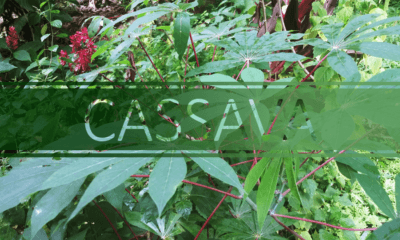
 Special Elements3 years ago
Special Elements3 years agoBest Cassava Manioc, Rankings, Benefits, Cancer Cure & Experience
-
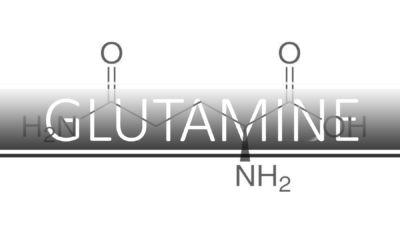
 Special Elements4 years ago
Special Elements4 years agoBest Glutamine Rankings, Benefits, Side Effects & Experience
-
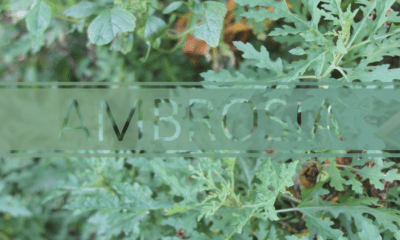
 Special Elements5 years ago
Special Elements5 years agoBest Ambrosia, Wormwood Rankings, Benefits, Side Effects & Experience
-
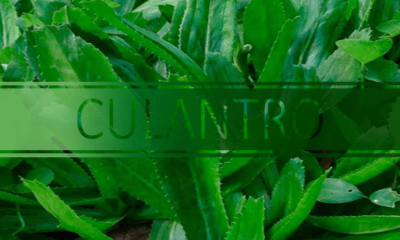
 Special Elements6 years ago
Special Elements6 years agoBest Culantro Rankings, Benefits, Side Effects & Experience
-
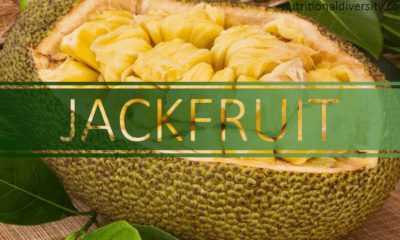
 Special Elements6 years ago
Special Elements6 years agoBest Jackfruit Rankings, Benefits, Side Effects & Experience


